Sitting your first exam? 3 things I wish I knew...(middle school)
Your first exam is a milestone. Do it right.
Start Browsing
Start browsing
< Wait, I have a password

to your account
 Facebook
Facebook
< Wait, I don't have a profile yet
Reset Password >
to save your details
 Facebook
Facebook
< Wait, I already have a profile

Start browsing
< Wait, I have a password



It’s school holidays! Yay, right? No, not “yay” at all. It’s school holidays and exams are approaching. The weather is getting warmer, the new Fifa just came out, and you’re getting way too invested in the Bachelor. How on EARTH are you going to get the motivation to actually study and concentrate?
Fear not. Here are 3 steps to study like a pro during the holidays so that you can get your studies done AND watch young men get their hearts broken on national television.
Recognise the guy in the photo? Yep, it’s Steve Jobs, the founder of Apple. Steve wore the same outfit everyday for over 20 years. It’s bizarre isn’t it? With his wealth and eye for design, couldn’t he invest in some other outfits?
There’s actually a very distinct scientific reason for it. Steve Jobs didn’t want to fall victim to what is known as decision fatigue (AKA willpower depletion). Decision fatigue refers to the reduced ability to make sound decisions after having made a number of other decisions throughout the day. Studies have shown that the more decisions we make during the day, the less ‘energy’ or willpower we have to make other decisions later on. It’s like we have a finite amount of ‘choice power’ throughout the day, and so the best thing to do is to conserve it for the important choices.
Steve felt that choosing what to wear was a decision he could live without. It would mean that he could save up his willpower and energy for more important decisions in the day, like you know, designing your iPhone. Barack Obama does the same thing. He delegates as much decision making as possible (including his clothing) so he can focus on making sure that nobody breaks America.
So, how does this work for you?
Each day of holidays are plagued with questions and decisions; study now or later? Watch TV now, or later? Wash the dishes or study? Feed the cat? Rearrange all my highlighters so they follow the colour spectrum more accurately? You catch my drift.
There’s always something to do other than study, and so the very battle of having to decide to study is going to take up energy that you could be using to actually prepare for exams. The best way to overcome procrastination and the constant guilt of ‘not studying’ is to create a routine.
The best routine to follow is the one you use every day: your school timetable. Mirror the School week. Get your class timetable in front of you. Let’s say you start your first class on a Monday at 9am, and it’s English. This means that in the holidays, 9am on a Monday, you’re studying for your English Exam. Once it hit’s 9:45 (where you normally have a 5 minute break before Math Methods) you take a break for 5 minutes to stretch your legs and make a cup of tea. At 9:50, you start studying Maths. At lunch time, guess what? You eat Lunch! Once the day is over and it’s 4pm, you’re done. That means you’ve got the whole evening to play sport, hang out with friends, and yes – watch the Bachelor.
The best thing about this system is that it removes the element of choice that actually causes us to procrastinate. Instead of wasting 20 minutes checking Facebook while you “think about writing an essay”, you can get to work in a focused manner and take structured breaks throughout the day. It also removes the inevitable guilt factor that arises whenever you take a break that isn’t planned. By setting out when you take your study breaks, you allow yourself the freedom to actually enjoy them!
Of course you don’t need to stick to this 100% of the time. It’s a guide, not a rulebook. In doing so, however, you’re going to find that your day has way less distraction and that you’ll actually enjoy the time you take to relax!
Part of the reason we get so distracted is because we sit in the same spot all day, every day, for 2 weeks during holidays. Our minds start to associate the feelings of boredom and stress and difficulty with the space that we allocate for study. Has that ever happened to you? You take a break from study, feel totally refreshed, and then as soon as you go back to your desk and sit down it feels like you never left? You open your textbook and boredom hits you like a 3-hour lawn bowls marathon.
The reason this happens is because we associate the emotions of boredom and study with our physical surroundings. In this way, we become anchored to those emotions simply because of the location that we’ve used for studying. So the best way to overcome this is to change study locations.
Pick about 2-3 locations to use for studying each day. This could be as simple as using different rooms in your house or changing desks at the library. If you have the mobility, you could switch it up and spend the morning at home, the afternoon at the library, and then on your way home you could knock over some study at a café or a friend’s house. The key is to pick environments that allow you to concentrate on what you’re doing, but still provide enough variation that you don’t feel like you’ve been sitting in the exact same spot all day.
This is a really good way to keep feeling fresh and mobile. Just make sure that you pick spaces that are appropriate to the task that you need to do. For example, if you’re trying to memorise something, don’t go anywhere with background noise (like a café with music/loud people) because this will create contextual cues for your memory. Only memorise when you’re in a quiet space so that you don’t subconsciously rely on the background noise as a cue for your memory (because you won’t have that background noise during your exam).
Discipline is hard, especially when you’re by yourself and don’t have anyone policing you. Distractions are EVERYWHERE, so you’re the only person that can be accountable and stop yourself from indulging in an hour of Facebook stalking. The best way to build in self-accountability is to turn things into a bit of a game.
One way of doing this is to study with a friend. I used to go to the library with a mate and we’d both put $10 down on the table. We’d then put our phones on top of the cash. No matter what, the first person to reach for their phone (or open a distraction on their laptop screen), would lose the $10. If you’re like me, you get super competitive with your friends and losing $10 feels like losing $100 when it’s to a mate. So give it a shot with any consequence (doesn’t need to be financial) and see who can hold out the longest.
Otherwise you could start using apps to block social media and other distracting websites so that you literally have no choice but to keep studying (or just stare at the wall). For a good list of apps to help you focus and study more effectively, check out our post on the top 15 apps a student shouldn’t live without.
We hope this was helpful and if you have any tips of your own or any questions, feel free to leave a comment and we’ll get back to you.
Good luck and happy holidays!
 -
-